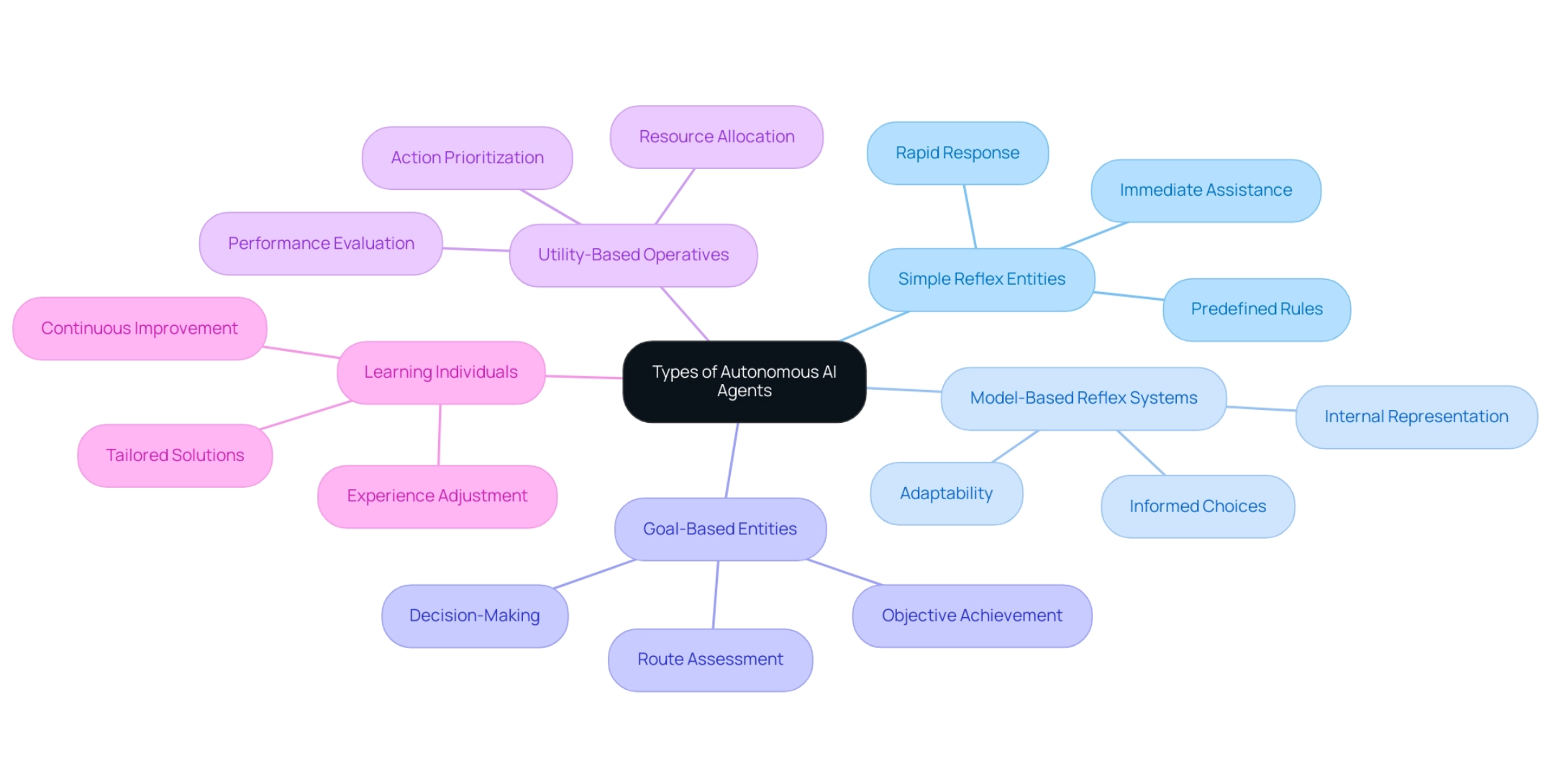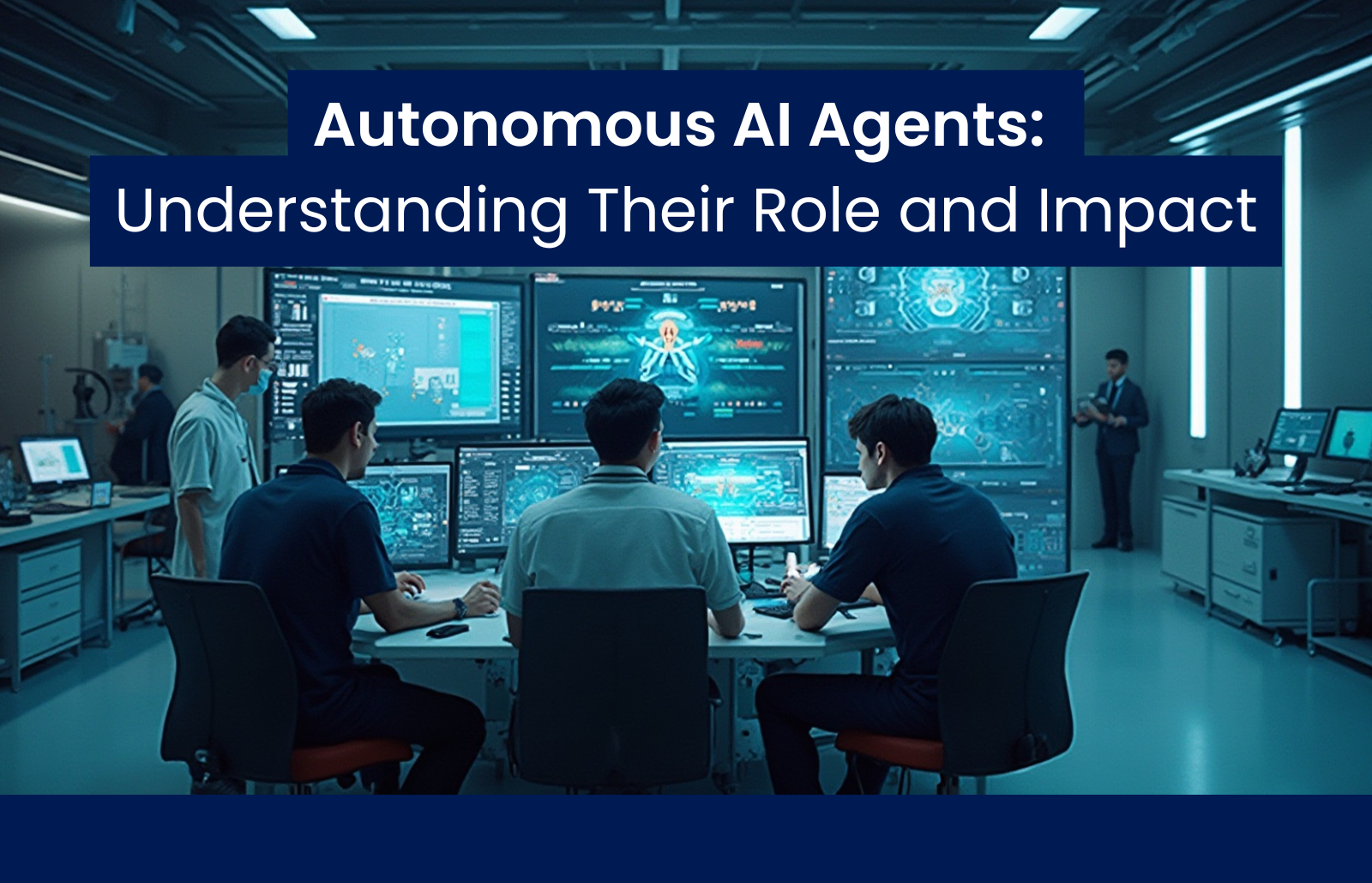Autonomous AI agents are transforming multiple industries by executing tasks and making decisions on their own which leads to improved efficiency and productivity. The article explores how these agents function in essential areas like healthcare and finance where they improve operations and user experiences. The report shows how consumer acceptance of these technologies grows while predicting their expanded use by 2025.
As technology continues to develop at an extraordinary rate autonomous AI agents are becoming a groundbreaking factor in the field of artificial intelligence. These intelligent systems demonstrate an exceptional capability to execute tasks and make decisions without human intervention which contrasts traditional AI which needs extensive human supervision.
The adoption of transformative technology by industries worldwide brings significant improvements to efficiency and productivity while deeply enhancing customer experience. The adoption of autonomous AI agents by 2025 will transform key areas like healthcare and finance while creating innovative operational approaches in customer service.
The research investigates autonomous AI agents by examining their functionalities and potential applications while projecting their future trends which can revolutionize business operations and consumer engagement methods.
Defining Autonomous AI Agents: A New Era in Technology
Autonomous AI agents represent an important advancement in artificial intelligence because they can perform tasks and make decisions independently without continuous human oversight. These AI agents operate differently from traditional systems that work with fixed rules and require human input because they employ machine learning and adaptive algorithms to learn from their surroundings while continuously improving their performance.
Autonomous AI systems have a significant influence across e-commerce and customer service sectors by 2025. The majority of consumers show interest in using AI systems to book flights with 70% openness while 65% are willing to use AI systems for hotel reservations. Consumer interest in using AI tools for additional products falls between 50% and 60% which demonstrates broader acceptance of AI technology.
The proportion of consumers who feel comfortable with AI-generated personalized content stands at 37%, which is reflected in Gen Z consumers where 44% share this sentiment.
Autonomous AI agents deployed in real-world applications demonstrate significant enhancements in operational efficiency and user experience. The case study “Consumer Frustration with Traditional Customer Service” reports that U.S. customers experience transfer in 87% of their service interactions which leads to widespread dissatisfaction and many dropped inquiries. AI systems deliver personalized support without delay which resolves these difficulties while significantly shortening response time.
Another case study, “Agentforce: Enterprises which implement an agent-first strategy create revolutionary changes in productivity according to the study “Agentforce: Redefining Productivity and Customer Experience.” Marketing and e-commerce teams prioritize AI implementation because it drives revenue growth while reducing operational costs.
Zartis demonstrates its dedication to quality and developer contentment by maintaining a 4.8 out of 5 Glassdoor rating which supports discussions on how AI technologies improve customer service. The core capabilities of autonomous AI agents include handling intricate operations in supply chain logistics and legal research along with software development to demonstrate their multi-functional nature.
When companies start using autonomous AI agents within their operational processes they will experience significant improvements in efficiency and innovation which allows them to stand out in a rapidly developing technological world.
Exploring the Different Types of Autonomous AI Agents
Different categories of autonomous AI agents exist based on their unique functionalities and business applications which help improve customer support efficiency together with operational performance.
- Simple Reflex Entities: The entity functions according to predetermined rules which trigger direct responses to particular stimuli. This system excels in managing uncomplicated tasks that need immediate reactions.
- Model-Based Reflex Systems: The system holds an internal world model to help make decisions using both present data and historical information.
- Goal-Based Entities: These entities achieve their goals by assessing different courses of action to pick the most effective option.
- Utility-Based Operatives: Strategic planning benefits from prioritizing beneficial actions after evaluating potential outcomes.
- Learning Individuals: Performance improvement requires ongoing adaptation to learn from experiences and absorb new information which proves vital in ever-changing environments.
An analysis of AI systems used for financial market trend prediction reveals how these technologies process real-time data to predict market trends which enhances both decision-making and resource management.
Levine points out that Amazon uses AI systems together with machine learning for personalizing shopping experiences throughout its massive product range of over 300 million items as an example of customer engagement applications.
Gen Z consumers show increasing acceptance of AI-generated personalized content as statistics reveal that 44% of them feel comfortable with this technology.
Organizations seeking growth through innovation find a dependable partner in Zartis’s team augmentation and technology consulting services.

Real-World Applications: How Autonomous AI Agents Are Transforming Industries
The implementation of self-governing AI agents is bringing transformative changes to operational processes within multiple industries. Key sectors include:
Healthcare: Healthcare operations benefit from triage support along with improved record management and diagnostic capabilities which result in quicker patient care and improved medical outcomes. The use of AI tools in healthcare settings boosts care prioritization while simultaneously cutting down patient wait times.
Finance: Fraud detection systems along with risk evaluation and portfolio management heavily depend on this technology. Financial institutions can manage risks effectively through real-time data processing.
Manufacturing: Streamline supply chain management together with equipment monitoring and automated quality control to minimize operational disruptions and reduce expenses.
Client Support: Virtual assistants and chatbots deliver immediate support by managing inquiries throughout the full 24-hour cycle. Three-quarters of consumers recognize that artificial intelligence improves their shopping experience. Bank of America’s assistant Erica demonstrated tangible results by handling more than 2 billion interactions.
More than 40% of marketing budgets are now allocated to AI-driven campaigns which demonstrates financial commitment to these technologies.
Zartis maintains a 4.8/5 Glassdoor developer satisfaction rating which enables them to effectively deploy advanced AI technologies throughout multiple industries.
Navigating the Challenges and Risks of Autonomous AI Agents
The introduction of autonomous AI agents brings multiple challenges along with their advantages.
- Information Privacy: AI needs sensitive data access which creates unauthorized access and data breach concerns. Organizations using security AI experience an average reduction of $1.76M in breach costs.
- Bias and Fairness: Artificial Intelligence systems trained with biased datasets have the potential to perpetuate existing inequalities or enhance them. Two-thirds of American banks voice concerns regarding the training of artificial intelligence systems with personal information.
- Accountability: Determining who is accountable when AI agents make decisions proves to be a complex task.
- Security Vulnerabilities: AI systems can become targets for cyberattacks. Companies need to improve employee training for these tools.
Zartis tackles these security risks using development practices that meet ISO 27001 certification standards to maintain compliance across sensitive industries including Fintech, Medtech, and Cleantech.
As global AI investments approach $632B by 2028 with financial services contributing 20% of this increase it becomes essential to implement effective risk management.
The Future of Autonomous AI Agents: Trends and Innovations
Multiple trends will determine how autonomous AI agents develop in the future.
- Increased Autonomy: Future systems will make complex decisions independently without needing human intervention.
- Integration with IoT: AI systems will work together with connected devices to create intelligent and adaptive networks.
- Enhanced Learning Capabilities: AI systems will gain knowledge from diverse experiences across evolving data landscapes.
- Ethical AI Development: The field will prioritize accountability and transparency along with fairness in future AI development.
A major retailer successfully implemented AI for personalized email campaigns which resulted in a 41% increase in click-through rates and a 24% increase in sales.
Through a combination of team augmentation and technology consulting Zartis helps clients succeed as they navigate the evolving AI-driven environment.
Conclusion
Autonomous AI agents represent a pivotal development in artificial intelligence which enables organizations to enhance operational efficiency and upgrade customer interactions. These agents distinguish themselves from traditional AI by operating autonomously and adapting through sophisticated algorithmic processes.
As businesses across sectors like healthcare and finance start adopting autonomous AI agents they demonstrate a major transformation in operational methods and consumer interactions. Through their capabilities businesses can improve operational efficiency with patient triage automation and fraud detection.
However, integrating autonomous AI comes with challenges: Protecting user privacy, eliminating AI bias, maintaining accountability standards, and reinforcing security systems are essential challenges when deploying autonomous AI systems. Proactive measures and ethical frameworks are essential.
The future development of autonomous AI agents will be influenced by their growing independence alongside their integration with IoT systems and the practice of responsible innovation. Businesses which adopt these innovations will pioneer the transformation of business models while developing deeper customer connections.
If you’re interested in leveraging autonomous AI agents to enhance your business operations and offering, we’d love to hear from you. Let’s explore how our AI consulting services can help you drive smarter, better results for your business!


